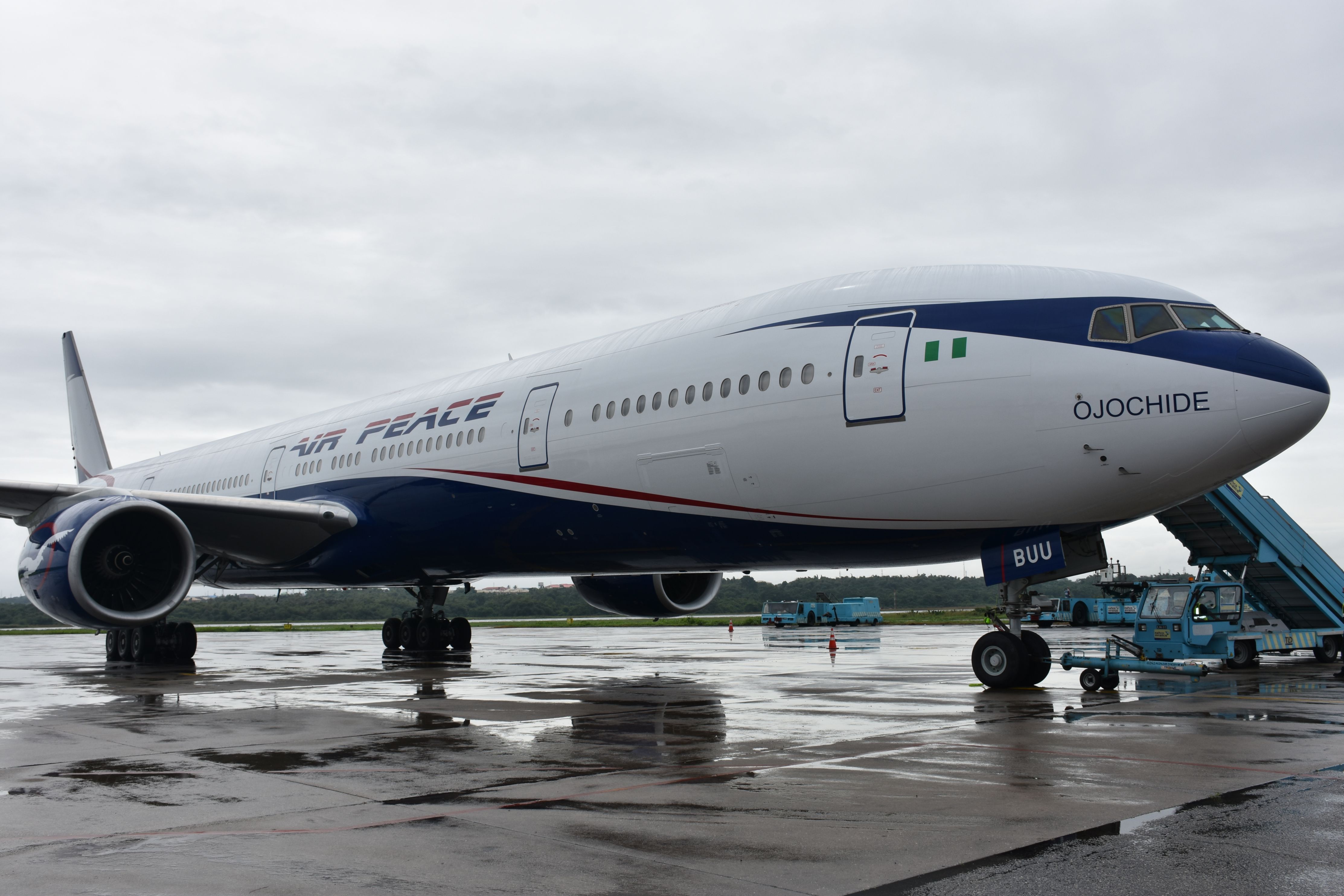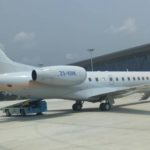
For Nigeria to reduce capital flight and encourage employment in the aviation sector, there is need to support local carriers.
T he Executive Chairman of Airline Operators of Nigeria (AON), Captain Nogie Meggison once described an airline as a diplomat because it carries the flag and name of a country to different parts of the world. Airlines are also the means countries use to cement diplomatic relations. For example, after the historic reconciliation between Ethiopia and Eritrea, the peaceful relation between the hitherto warring nations was cemented with the successful operation of Ethiopia Airlines to Asmara, Eritrean capital. This is why countries protect local airlines and support them when they find
it difficult to secure approval to fly to other countries. Some years ago when Arik Air protested against slot allocation on its Abuja-London flight by Heathrow Airport management in London, the matter was taken up by the federal government, which wanted to stop British Airways operations to Abuja and top official of the British government stepped in and the matter was resolved. What this means is that for airlines to operate international destinations successfully, they must be fully supported by government. That is why it is said that no airline can succeed without the support of government. The former Director General of the Nigerian Civil Aviation Authority (NCAA), Dr Harold Demuren, always stressed that there is nothing wrong supporting your own. There are invaluable gains that accrue to any nation that has successful airlines. Firstly, thousands of its citizens would be employed in the sector. There is a robust manpower development pogramme and airlines in international operations bring foreign exchange home. This, to some level, squares with the capital flight by foreign carriers.
Passenger Traffic
The Consumer Protection Department of the Nigerian Civil Aviation Authority (NCAA) recently released passenger traffic figures for year 2018, which indicated that 14. 2 million people travelled in that year. The traffic, compared to 2017-estimated increase of 11.2 million passengers, representing 20.8 per cent traffic upsurge, which means that both domestic and international airlines earned more revenue in 2018 than in 2017. Specifically, 34 airlines on the international routes airlifted 4.08 million passengers, while nine domestic airlines collectively carried the 10.09 million passengers mark in 2018. Indus- try observers said the increase shows the ex- ploits of local airlines, weathering the storm of a “toxic business environment that has almost made it impossible for airlines to last beyond the fifth year anniversary.” Although there are varied opinion about this, but the former Chief Operating Officer of Medview airline and currently the Direc- tor of Engineering, Ibom Air, Lukeman Ani- maseun recently told THISDAY that to check outrageous fares charged Nigerian travellers by foreign airlines and also to help domestic airlines operate profitably, government need to support its own airlines. These supports could be in the area of stable aviation fuel supply at relatively lower prices, access to single digit interest, long-term loans, a review of the multidesignation of foreign airlines to various airports in the country and standing behind Nigerian carriers when they apply to operate to other countries.
Operating Challenges
Clearly, Nigerian airlines face many operational challenges. Besides the high and undulating prices of aviation fuel, which price can change under hours, there are also infrastructural challenges and policies that are seemingly inimical to successful airline service in Nigeria. This unfavourable situation reflects in the current status of the airlines. For example, Med-View Airlines Plc, acquired Boeing 777 aircraft for its Hajj operations and revival of the truncated London and Dubai operations. The airline has, however, continued to slide, downsizing more operations and staffers lately due to the difficulty in accessing credit facility at outrageous interest rates and other challenges. Following its takeover by the Asset Management Corporation of Nigeria (AMCON) in February 2017, and injection of reportedly N1 billion, Arik Air showed signs of stability but not recovery. But THISDAY learnt that besides paying salaries and meeting basic obligations, many of the aircraft owned by Arik are not in operation. Many of them are grounded. So far, Air Peace appears to be one of the most stable airlines, which accounted for about 40 per cent of the 2018 total passengers on the local front. Many operators come into the industry and invest hugely, but are usually constrained by the hostile operating environment.
Air Peace came with unprecedented investment in aircraft in its bid to make a strong case for Nigerian flag carriers on regional and international skies and connecting most airports on its domestic service. To this effect, the airline recently placed a firm order for 10 brand new Embraer 195-E2 aircraft. The order comprised purchase rights for another 20 E195-E2 jets. Also, 124-seater jet in dual class and 146-seater jet in single class configurations respectively. With all purchase rights exercised, the contract is valued at N640.5 billion ($2.12 billion) based on current list prices. The carrier also set a regional record in September 2018, when it ordered 10 brand new aircraft from Boeing, which when delivered would increase its fleet size to about 37 aircraft.
With the new order, Air Peace’s fleet size is estimated to 57. Air Peace had earlier set a domestic record as the first Nigerian airline to acquire and register the Boeing 777 aircraft in the country. Three of the four wide-body aircraft it ac-quired for its long-haul operations to Dubai, Sharjah, Johannesburg, London, Houston, Guangzhou and Mumbai have so far been delivered. Multiple taxes and charges In many countries of the world, domestic airlines enjoy certain levels of tax holidays, even when the airlines are privately owned. This is to encourage them because they serve as catalyst for economic development in any nation. But in Nigeria sundry charges and levies at airports nationwide, account for at least 65 per cent of airlines’ earnings. Be- sides the five per cent charge on every ticket bought by passengers, which goes to NCAA and other agencies, there are other charges on the operators. These include the second popular five per cent Cargo Sales Charge, five per cent Value Added Tax (VAT), Passenger Service Charge of N1000 per ticket on local route, Charter Sales Charge, Aircraft Inspection Fees, Simulator Inspection Fees, Landing Charges, Parking Charges and Terminal Navigational Charge. Others are en-route charge, fuel surcharge, airport space rent, electricity charges, apron pass, ODC (on duty card) registration fee, service recovery charge, processing fee, Avio Bridge, aircraft registration and processing.
The airlines also pay Toll Gate Fee, VIP Lounge, Trolley Service, Clearance Fee, Check-In Counter Charge, Courier/Tarmac/ Pre-Release charges, Import Charge (Dom), Export Charge (Dom), Import Royalty, Export Royalty, Ports Charge, Exports Charge, Transhipment and Concession Fee. Together, these charges eat deeply into the earnings of the airlines. Chief Executive Officer of Air Peace, Allen Onyema, recently said if this current regime of taxation are s not reviewed downwards, no airline would survive. Onyema said though the charges had been in the system for long and some of them as fallouts of legislations, it was high time they were reviewed to ease the burden on commercial airlines.
“I suggest that government should raise a consulting firm to go round the country to find out why airlines have been dropping off. Heavy taxation is part of it. We are suffering. Air Peace supports payment of taxes to government; no government runs without the citizens paying tax. Airlines must pay their taxes. What we are asking is for these taxes to be streamlined in such a way that it will help us to help the government and help the country. “Commercial airlines are a catalyst to economic development in any country. That is why every country supports its airlines. We are not asking for any financial assistance but for an enabling environment that makes things work. It is not complimentary for us as a country that all our airlines are dying,” Onyema said. Chairman AON, Meggison, observed that over 50 indigenous airlines have existed in the country in the last 18 years, but only nine are flying presently.
“The mortality rate of airlines in Nigeria is high. The owners of the defunct airlines have all been success stories in other business endeavours except in aviation. Could all of them have been responsible for the failure of their airlines? The answer is no! Rather, the unfriendly policies and harsh operating environment have been the bane of aviation sector’s growth in Nigeria. We are mindful that if these issues and policies are not addressed urgently, the remaining airlines run the risk of becoming defunct in no time,” Meggison said.
Sustaining the Airlines President of the National Association of Nigerian Travel Agencies (NANTA), Bankole Bernard, said the airlines, as well as other stakeholders in the aviation industry have a lot to gain working in harmony than in silos and with a policy direction for growth and mutual benefit. Bankole said Nigeria should take a cue from countries like Ghana that are creating the enabling environment for aviation to thrive.

“I can say to you categorically that it is not possible for Airbus A380 aircraft to land in Nigeria. Even if they want to, we don’t have the infrastructure. That is one of the biggest aircraft in the world. But this same aircraft landed in Ghana. What makes Ghana better off than us? This is not about politics; it is about doing the right thing. We have the capacity to do the right things; we just choose not to do them. “There are a lot of things we can tap into. If the plan is to have Nigeria Air as our national carrier and it is not working out yet, are we saying there is no alternative plans to improve the sector? In what way have we supported the local airlines? Because the same problems facing the local airlines also lie in wait for the Nigeria Air and it will kill it within a short period. So, it will be just another white elephant project. It is high time we woke up from our sleep and understands that the aviation industry is a sensitive one that requires the government’s full attention. “This is because it is the fastest and safest means of moving from point A to point B. More so, when foreigners come into your country that is the first port of entry that showcases your worth as a nation,” Bernard added. With Air Peace venture into international destinations, Nigeria has got another chance to support more of its airlines to airlift passengers beyond the country.
THISDAY






